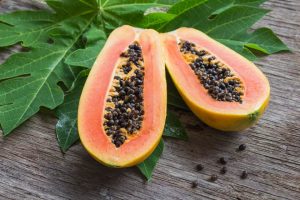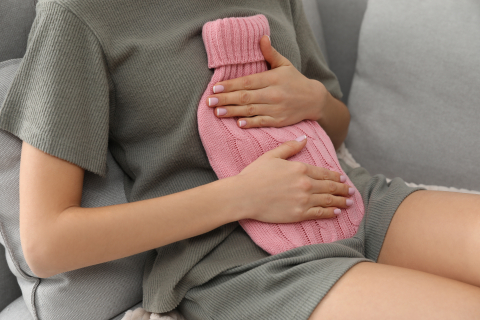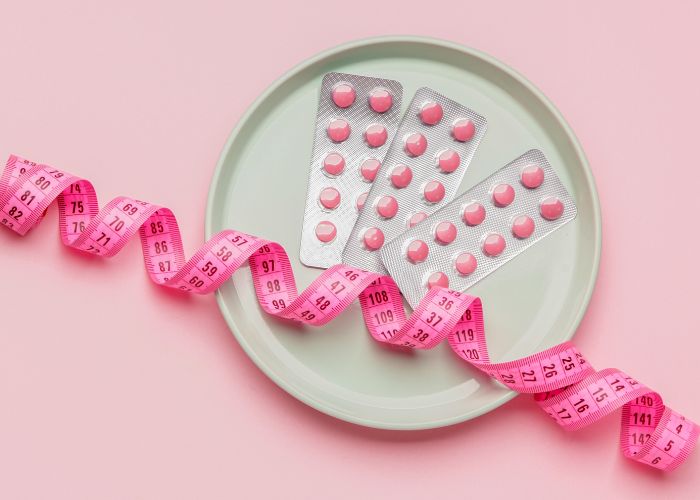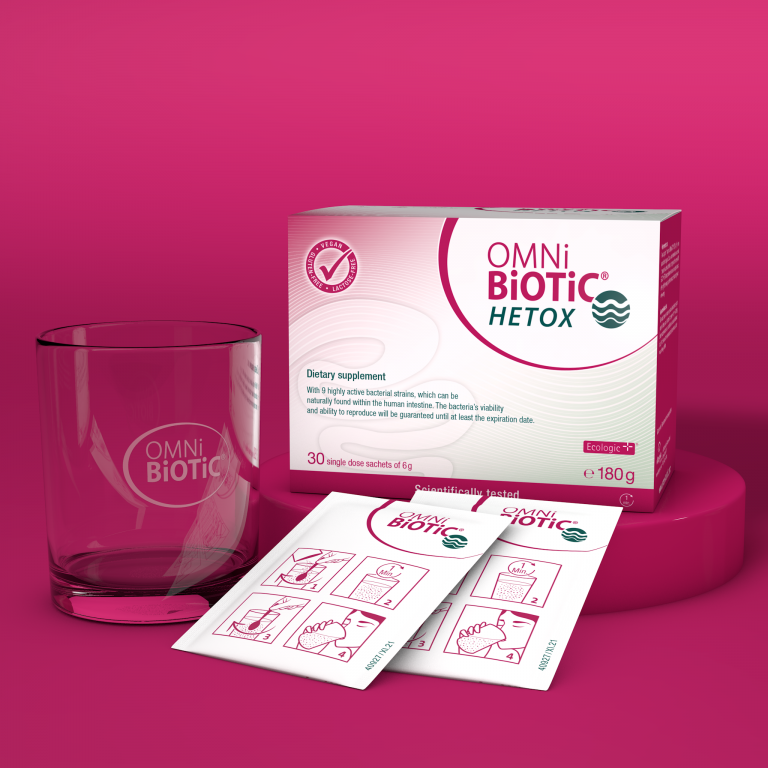Your hard-earned holiday is just around the corner and most of us choose to relax overseas. But beware: Not only sand between our toes, impressive culture and exciting adventures await us at our destination, but also foreign and even dangerous germs that plague our well-deserved holiday and they may even come back home with us as an unwanted souvenir.
The moment you begin your long-awaited journey and finally indulge in your first welcome drink with the backdrop of a magnificent beach your tummy begins to rumble and groan – one of the first signs that your holiday is quite literally going down the drain! Traveller’s diarrhoea is probably one of the most common problems that you can suffer from overseas. On average, every second tourist has such tummy troubles, however, the incidence varies quite strongly depending on your destination: The lower the standards of hygiene in your holiday destination and the higher the temperatures (germs thrive best at body temperature – i.e. 37°C), the more likely you are to take an unwanted break from your holidays. The intestines of the locals are used to the bacterial diversity – however, within the first two weeks, when tourists encounter these „local“ bacteria and viruses for the first time, they are more susceptible towards diarrhoea and other intestinal complaints.
Traveller’s diarrhoea as an unwanted souvenir
Enterotoxigenic Escherichia coli, short ETEC-bacteria, are primarily responsible for diarrhoea. They produce toxins that cause watery diarrhoea, nausea, and vomiting. Thankfully these problems usually only last a few days: The most ETEC-strains are self-limiting – i.e., they are removed from the intestines together with the faeces. Most infections are not dangerous, although they do ruin our holiday by confining us to our hotel rooms instead of tanning on the beach.
However, the whole thing becomes more complicated when pathogenic germs that really feel at home in our intestines and intestinal wall come into play: Salmonella, Shigella, Campylobacter, and Giardia lamblia all cause severe infections in the digestive tract, especially when the intestines are vulnerable due to pre-holiday stress and potentially weakened intestinal wall: This so-called „Leaky Gut“ allows bad bacteria to settle in the intestinal wall and, therefore, they don’t leave the body that quickly either.
If you suffer from a complicated case of traveller’s diarrhoea while on holiday, then you may have to face long-term consequences, as you may bring the bad bacteria home as an unwanted souvenir. Up to 10% of those affected develop chronic traveller’s diarrhoea that can last even weeks after the holiday is over. Another complication is postinfectious irritable bowel syndrome with long-lasting stomach cramps, flatulence, and diarrhoea. A gift that everyone could do without!
Better safe than sorry – tips on how to avoid traveller’s diarrhoea
 The best way to prepare yourself against traveller’s diarrhoea is to follow these simple hygiene rules while on holiday overseas – after all, you want to have beautiful memories of your holidays and not the toilets.
The best way to prepare yourself against traveller’s diarrhoea is to follow these simple hygiene rules while on holiday overseas – after all, you want to have beautiful memories of your holidays and not the toilets.
„Cook it, peel it, boil it or leave it!“
This should be your motto each time you go to the hotel buffet, or visit the local food truck. Make sure that meat, fish, and other kinds of seafood are properly cooked and not raw on the inside. Even classic breakfast dishes like a soft boiled egg or an omelette can be breeding grounds for bacteria. You should also avoid salads and fruits that were washed with tap water, and enjoy fruits that you can peel yourself (e.g., bananas or mangos). Be careful with melons: Producers often add water that is potentially full of bacteria to increase the weight so that they can sell them for a higher price.
Speaking of water:
A few ice-cubes in your cocktail can also ruin your holiday. Often enough they have already melted in your drink – it is maybe better to ask a second time or keep an eye on the bartender. Apart from that, pay attention to the hissing and popping sounds when you open a bottle of water to make sure the seal hasn’t been broken.
Bacteria that cause diarrhoea also lurk in sanitary facilities:
They can be found on doorknobs, hands, toilets and much more. Washing your hands regularly and thoroughly disinfecting them (especially before a meal and after going to the toilet) can reduce the risk of infection.
Travel probiotics
In addition to these sanitary measures, travel experts recommend preparing your intestines for your journey with special travel probiotics (e.g., OMNi-BiOTiC® TRAVEL): They contain selected helpful bacterial strains that stand up against Salmonella, Shigella, and co. and complement your natural intestinal flora in the best possible way while on holiday. Studies also show that the use of probiotics can reduce the duration of traveller’s diarrhoea by one or two days. To find out what shouldn’t be missing in your travel first-aid-kit, go to your local pharmacy.
Holiday stress for the digestive tract
As if pathogenic bacteria didn’t put our digestive system under enough strain: Constipation, flatulence, heartburn and other gastric complaints can take away our holiday joy. Stress upon arrival and a lack of movement on long flights or drives „paralyse“ the intestines. A change in our daily rhythm and strange new dishes also slow down our digestion. The loss of liquids due to sweating or dry, climatised air makes our faeces thicker and more difficult to excrete. We often also suppress the need to go to the toilet, either because there is no toilet nearby or the sanitary facilities are so dirty that you’d rather do your „business“ elsewhere. All these factors often lead to traveller’s constipation, accompanied by bloatedness and flatulence.
Even the stomach has to go through a lot while on holiday, especially because we „treat“ ourselves: Fried and fatty foods, alcohol, nicotine, coffee, soft drinks, and other fizzy drinks put the stomach under strain as well as hot and exotic spices. All-inclusive-offers and lavish buffets often make us eat more than we are used to. This can overwhelm the stomach and lead to inflammation of the stomach mucosa and consequently symptoms such as heartburn and stomach ache.
 There is. however, of course, something you can do about it: Support your digestion with the power of papaya! This plant has an excellent reputation as a health-promoting fruit in tropical countries. The South American natives named the papaya the „tree of health“ because of its abundance of digestive ingredients. The papaya contains the protein-digesting enzyme Papain that can give your stomach a much-needed boost while travelling. When stomach complaints arise, the combination of papaya and calming oats has been proven to be most effective. Why shouldn’t your gut have a relaxing trip top?
There is. however, of course, something you can do about it: Support your digestion with the power of papaya! This plant has an excellent reputation as a health-promoting fruit in tropical countries. The South American natives named the papaya the „tree of health“ because of its abundance of digestive ingredients. The papaya contains the protein-digesting enzyme Papain that can give your stomach a much-needed boost while travelling. When stomach complaints arise, the combination of papaya and calming oats has been proven to be most effective. Why shouldn’t your gut have a relaxing trip top?
With these tips in mind, the entire team at Institut AllergoSan would like to wish you a relaxing summer holiday – and a good “gut feeling“ during your travels!
Traveller’s diarrhoea
Traveller’s diarrhoea usually begins between the third and ninth day of your travels and can last up to four days (+/- two days). The number of bowel movements (three to six times a day) as well as the amount of water (up to 85%) increase significantly. The diarrhoea is mostly accompanied by cramp-like pains (65-70%), nausea and vomiting (30-45%), and fever (12-25%).
The risk of contracting traveller’s diarrhoea in different countries
- High risk: Up to 50% of all travellers suffer from diarrhoea when visiting Latin America, Asia, and Africa – 80% of all travellers can be affected when on a Nile cruise.
- Intermediate risk: When travelling to Southern Europe, Israel, and the Caribbean, 10-20% of travellers have diarrhoea.
- Low risk: Less than 8% of all travellers suffer from diarrhoea when going to Northern Europe, North America, Australia, New Zealand, and Japan.
What to do if you are suffering with diarrhoea?
- Drink a lot to stay hydrated (tea, boiled water, etc., but no soft drinks: sugar withdraws even more water from the body)
- Eat easily digestible foods (e.g. white bread, steamed carrots, rice, porridge, etc.)
- Take probiotics to support the intestinal flora against diarrhoea pathogens.
When should you go to the doctor?
You should consult a doctor if the symptoms don’t improve within two to three days, the stool contains blood or mucus, you develop a high fever or if fatigue and cardiovascular problems occur. This also applies to children under the age of two, pregnant women, the elderly, and weakened individuals. You should also go to the doctor in suspected cases of infections with Salmonella and other highly contagious germs, or diseases such as Typhus and Cholera.





























